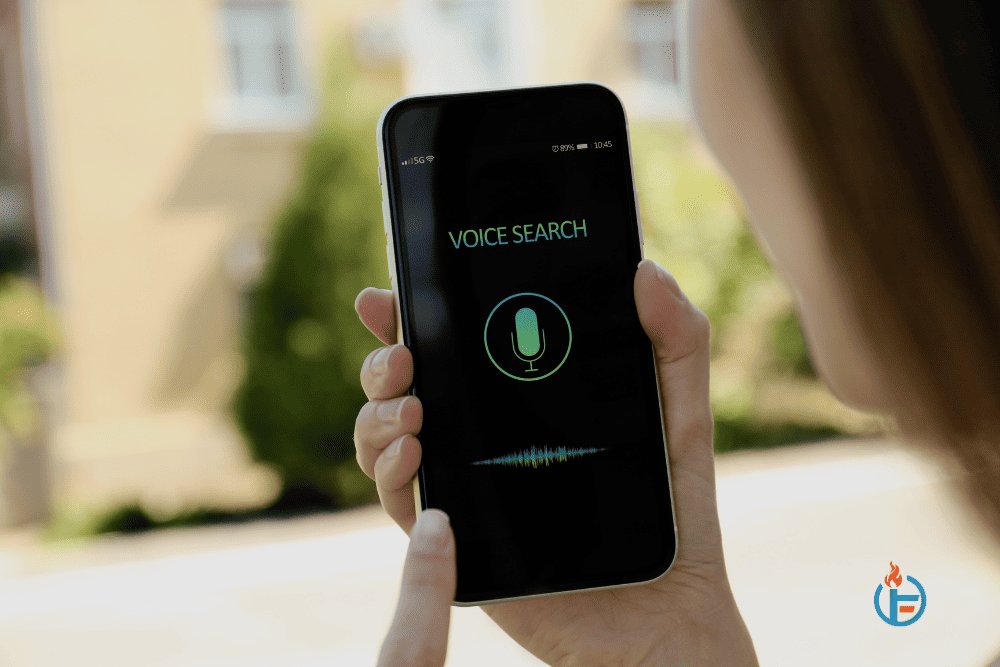Voice Search Optimization Tips for Local Businesses to Thrive Online
Voice search is on the rise. In fact, one in five searches on Google are now voice searches.
That number will only continue to grow as more and more people use voice-activated assistants like Siri, Alexa, and Google Home.
As we continue to move into the digital age, technology is becoming more and more advanced. One of the latest advancements is voice search optimization, which is quickly becoming a popular way for people to search for information.

Local businesses need to be aware of this trend and optimize their websites for voice search. Here are 10 voice search optimization tips for local businesses:
1. Focus On Long-Tail Keywords
Most voice searches are initiated using long-tail keywords. These are typically three or more words that are specific to what the searcher is looking for.
For example, rather than searching for a “plumber”, someone might search for “24-hour emergency plumbing services”.
To optimize your website for voice search, focus on creating content that is optimized for long-tail keywords. This means including these keywords in your titles, description tags, and throughout the body of your content.
2. Implement Natural Language
Use natural language in your voice search queries. This will help you get more accurate results and ensure that your voice search results are relevant to your needs.
3. Update Your Listings
Make sure your business information is up-to-date and consistent across all the major directories, including your Google Business Profile, Yelp, and Bing Places. This will help ensure that your business comes up when people search for it by voice.
4. Utilize Local Structured Data
Structured data can help your website show up in rich results, which are often featured prominently in voice search results. Adding structured data to your website can help you get an edge over your competition.
5. Optimize Your Content
Another important factor to consider is your website’s metadata. This includes things like your title tags, meta descriptions, and alt tags. Make sure that your metadata is clear and concise and contains your target keywords. This will help your website to rank higher in Voice Search results.
6. Optimize for Featured Snippets
Featured snippets are designed to give users a quick answer to their questions, so your content should be straightforward and to the point.
Write in short, simple sentences and use bullet points where possible. Featured snippets are triggered by specific keywords, so it’s essential to use them wisely. Use them in the title and throughout the body of your content, but don’t stuff them in – this will only harm your chances of appearing in a featured snippet.
7. Target Local Keywords
When you’re targeting local keywords, be sure to include location-specific keywords in your content. This will help you rank higher in voice search results for those who are searching for businesses or services near them.
Make sure your website is optimized for local SEO. This includes claimed and verified business listings, local schema markup, and more.
In addition to using location-specific keywords, you can also create location-specific content. This could be blog posts about local events, attractions, businesses, etc. This type of content will help you attract visitors from your target area and improve your voice search ranking.
8. Optimize for Mobile Devices
If you want to stay ahead of the competition, optimizing your website for mobile devices is important. More and more people are using their smartphones and tablets to search the web, so if your site isn’t mobile-friendly, you could be missing out on many potential customers.
Here are some tips to help you optimize your site for mobile devices:
1. Use responsive design.
One of the best ways to optimize your site for mobile devices is to use responsive design. This means that your site will automatically adjust to fit the screen size of the device that is accessing it. This is important because it ensures that your content will always be easy to read and navigate, no matter what device someone is using.
2. Simplify your design.
When designing your website, it’s important to keep things simple. Mobile users have limited space to work with, so if your design is too complicated or cluttered, it will be difficult for them to use your site. Stick to a simple layout with clear navigation so that users can easily find what they’re looking for.
3. Optimize your images.
Images can be a great addition to your website but can also slow it down if they’re not properly optimized. Make sure to compress your images so that they load quickly on mobile devices. Also, ensure that your images are sized correctly so they don’t take up too much space on the screen.
4. Use proper typography.
Typography is another important factor to consider when optimizing your site for mobile devices. Mobile screens are small, so it’s important to use a font that is legible and easy to read. Stick to simple fonts that are easy on the eyes, and avoid using too many different fonts on your site.
5. Minimize your use of pop-ups.
Pop-ups can be annoying on desktop computers, but they’re even more annoying on mobile devices. If you must use pop-ups on your site, make sure to limit them so that they only appear after a user has taken an action, such as clicking on a link. And make sure that your pop-ups are easy to close so that users don’t have to struggle to get rid of them.
6. Improve your page speed.
Users are impatient, so if your website takes too long to load, they will likely give up and go to another site. That’s why it’s crucial to improve your page speed. One way to do this is to optimize your images. You should also consider using a content delivery network (CDN) to deliver your content faster.
7. Use AMP pages.
AMP pages are special pages that are designed to load quickly on mobile devices. AMP pages can significantly improve your mobile user experience if you have a blog or news website. Google has more information on how to create AMP pages for your website.
8. Monitor your mobile traffic.
Finally, monitoring your mobile traffic to see how well your site is performing on mobile devices is essential. Google Analytics is an excellent tool for this. You can use it to track things like pageviews, bounce rate, and average time on site. This information can help you identify areas where you need to improve your mobile website.
By following these tips, you can ensure that your website is optimized for mobile devices and that you’re providing a good user experience for your visitors.
9. Test and Analyze
As a website owner, you should constantly be testing and analyzing your site to ensure that it is performing at its best. You need to consider many factors when doing this, and one of the most important is your site’s voice search optimization.
10. Get Feedback from Customers
As a business owner, you always want to improve your products or services. But how can you know what improvements to make if you don’t know what your customers think? Asking for feedback is a great way to get started.
Here are some tips for getting feedback from customers:
1. Make it easy to give feedback.
Don’t make customers jump through hoops to give you feedback. The easier you make it, the more likely they are to do it.
2. Ask specific questions.
Don’t just ask general questions like “how did you like our service?”. Ask specific questions that will help you identify areas to improve. For example, “What did you think of our new product?” or “What did you think of our customer service?”
3. Use multiple channels.
Don’t limit yourself to one channel for feedback. Use multiple channels such as surveys, social media, phone calls, etc. This will help you get a more well-rounded view of customer feedback.
4. Respond to feedback.
When you get feedback, take the time to respond to it. This shows your customers that you care about their opinions and may encourage them to give more feedback in the future.
5. Follow up.
After you make improvements based on customer feedback, follow up with your customers to let them know. This helps to build trust and shows that you really are listening to what they have to say.
Asking for customer feedback is a great way to get started on making improvements to your business.
Conclusion
In this digital age, where voice-activated assistants like Siri, Alexa, and Google Home have become an integral part of our lives, adapting to the trend of voice search is no longer optional—it’s essential for local businesses. As we’ve explored in this article, optimizing for voice search involves a combination of strategic choices, from focusing on long-tail keywords to embracing natural language and providing up-to-date information.
By implementing these 10 voice search optimization tips, local businesses can position themselves to thrive in an era where voice search is on the rise. From refining your website’s content to ensuring mobile-friendliness and harnessing the power of structured data, each step brings you closer to achieving better visibility in voice search results. Moreover, the commitment to continuous testing, analysis, and customer feedback is the key to staying ahead in the game.
At Innovative Flare, we’re committed to helping local businesses like yours succeed in the digital landscape. Our expert team specializes in voice search optimization, SEO strategies, and responsive web design to ensure that your business keeps up and stands out in this ever-evolving digital world.
Ready to take your business to the next level? Let’s work together to implement these voice search optimization tips and many more tailored strategies to drive more local customers to your business. Contact us today to schedule a consultation and discover how Innovative Flare can help you achieve your digital marketing goals. Don’t miss out on the opportunity to reach your target audience effectively through voice search—partner with us for success!
 seolounge
seolounge


